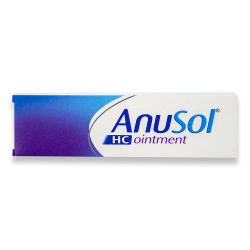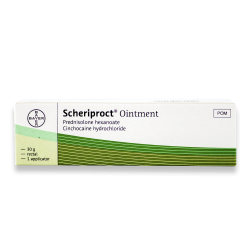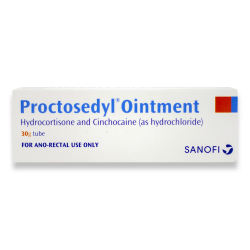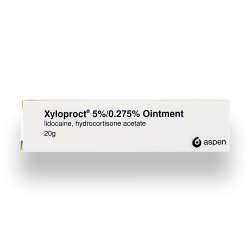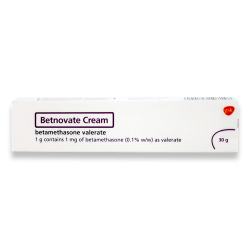All treatments
- Review by a qualified doctor
- Including prescription
- Next-day delivery included
Different treatments exist to relieve both internal and external symptoms. You should speak with your doctor to determine which is best for you.
Treat the condition at its source with suppositories. Fast and effective medications are available from 121doc.
The causes of piles
Internal haemorrhoids are essentially inflamed vascular structures that are rich in blood vessels. Inflammation occurs because of pressure that causes irritation and results in an immune response. Sometimes the inflammation can be so severe that these structures prolapse and push their way through the anal opening. When this happens internal haemorrhoids should not be confused with external haemorrhoids. External haemorrhoids are far less common and are blood clots that form around the edge of the anal opening.
There are several risk factors that can increase the likelihood of a person developing this condition such as old age; a diet that is low in fibre and that often leads to constipation; lifting heavy objects or being obese. Some people can also be more prone to them because it runs in the family.
The symptoms
Piles can sometimes be asymptomatic, but when symptoms do occur they can cause discomfort. They may include: bright red blood after passing stools, piles hanging through the anal opening that need to be pushed back after passing stools, mucous or discharge after passing stools, itching, a sore or sensitive anus or a desire to pass stools even when bowels are empty.
Prevention
There is no direct way to prevent haemorrhoids but you can reduce your chances of developing it by eliminating some of the risk factors. You can try to add more fibre in your diet, drink more water and do more exercise to keep your bowel movements regular. You may also want to avoid excessive alcohol use. Losing weight if you are currently overweight can also reduce your risk of developing piles.
Treatment Options
How haemorrhoids are treated is largely dependent on their severity. Mild cases can often go away on their own if patients take steps to improve their diet. Taking in more fibre and fluid can make stools softer and far less likely to cause further irritation. You may also choose to use a laxative to deal with constipation.
If your symptoms aren't going away with the help of diet and exercise then over-the-counter or prescription treatments are an option. Prescription haemorrhoid treatments such as: Anugesic HC, Proctofoam, Proctosedyl, Scheriproct, Ultraproct, Uniroid, Xyloproct or Betnovate, can offer immediate topical relief from symptoms while also reducing swelling. Haemorrhoid treatments are commonly available in the form of gels, ointments, creams, foams or suppositories that can be used externally and/or internally.
In extreme cases where haemorrhoidal swellings are quite large and won't go away with the help of a more fibrous diet or prescription treatment, medical procedures such as injections, surgery or infra-red coagulation can be considered. These procedures all involve the actual removal or shrinking of piles.
Ordering piles treatment online
Prescription treatments are available online. Simply place an order and ensure that you complete the online consultation.Our doctors will review your consultation and provide a prescription if the treatment of your choice is safe for you to use. All prescriptions are processed by a registered pharmacist and shipped via overnight delivery so you can start your treatment as soon as possible.
FAQs
Our consultations include general questions about your health (e.g. blood pressure levels, current and past conditions), as well as specific questions related to your selected treatment. We will also request relevant personal information to complete payment and delivery.
All questions are necessary, and your answers and details will not be shared with any third-parties. Only our doctors have access to your medical information.
